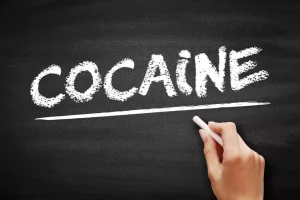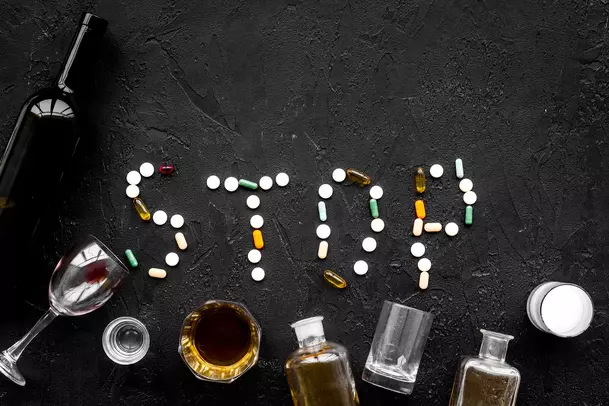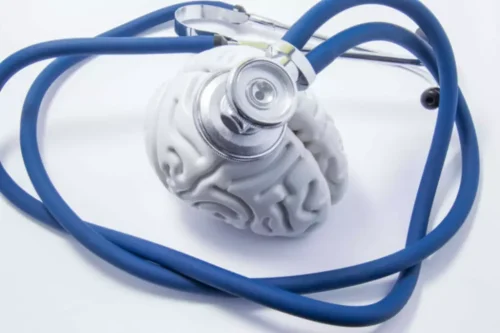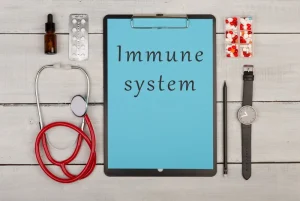People who don’t believe in treatment and recovery are less likely to make the effort required to successfully complete treatment. The symptoms of stress can also contribute to addiction, with the use of alcohol becoming a temporary and unhealthy way to cope. According to the 2019 National Survey on Drug Use and Health (NSDUH), more than why is alcohol so addicting 85% of adults in the United States (18 years of age and older) reported consuming alcohol in the past year. Of these millions, more than 25% reported binge drinking in the past month. Binge drinking is considered to be a red flag when it comes to consuming alcohol that often leads to more serious problems such as alcohol addiction.
Special Health Reports
The ultimate non-partisan issue, put on the back burner by both parties as approximately 108,000 people die a year. Alcohol can also impair your ability to get restorative rest because you’re less likely to enter REM sleep, which has been shown to increase your risk of dementia. “As with all things metabolism though, I doubt this is the only thing that causes differences in how we tolerate caffeine. Some of the other proposed differences include sex and body composition and there are also behavioural factors that can influence caffeine metabolism like smoking and diet,” says Smith. It might not be your age that’s affecting your ability to enjoy coffee but other factors, some which are set in stone and others which change over time.
Social Pressure
Sober communities can also share relatable experiences and offer new, healthy friendships. And these communities make the person with an alcohol addiction accountable and provide a place to turn to if there is a relapse. If you feel that you sometimes drink too much alcohol, or your drinking https://ecosoberhouse.com/ is causing problems, or if your family is concerned about your drinking, talk with your health care provider. Other ways to get help include talking with a mental health professional or seeking help from a support group such as Alcoholics Anonymous or a similar type of self-help group.
Impact on your health
- “Caffeine blocks adenosine receptors which promote sleep, which then increases production of dopamine, noradrenaline and glutamate – these are all neurotransmitters that play a role in cognitive function.
- While I am consuming it, it is consuming me.” These are words that sadly come out of the mouths of too many people.
- On top of that, you’re likely feeling less anxiety and are better able to regulate your emotions when life’s hiccups arise.
- Detoxification is the first crucial step in treating alcohol use disorder.
- Gradually, this craving becomes habitual, resulting in automatic, unthinking repetition.
People drink because their friends, coworkers, and family are drinking. Therein lies the problem; Drinking produces a sort of “high” that we begin craving. Whether it’s the feeling of fitting in, being the center of attention, forgetting about their problems for a while, or simply numbing any pain you feel, those feelings can become addictive.
- This disorder also involves having to drink more to get the same effect or having withdrawal symptoms when you rapidly decrease or stop drinking.
- It also includes binge drinking — a pattern of drinking where a male has five or more drinks within two hours or a female has at least four drinks within two hours.
- Taking an alcoholic quiz can help individuals assess their drinking habits and determine if they need professional help.
- As well as ‘psychological addiction’, alcohol can also produce physical dependency.
There are stages of alcoholism and the sooner an individual gets help, the better for not only them but their families as well. Alcohol is one of the most commonly consumed legal ‘drugs’ in the world. From celebrating weddings and the birth of a child to unwinding after a long day at work and drinking to decompress, alcohol is a part of just about everyone’s life in one way or another.
- In theory, these stages of addiction can happen so gradually that people don’t realize how out of control their drinking has become until they’ve reached the middle or late stage.
- Consider talking with someone who has had a problem with drinking but has stopped.
- It might not be your age that’s affecting your ability to enjoy coffee but other factors, some which are set in stone and others which change over time.
These complications are reasons why it’s important to treat alcohol addiction early. Nearly all risks involved with alcohol addiction may be avoidable or treatable, with successful long-term recovery. Because denial is common, you may feel like you don’t have a problem with drinking. You might not recognize how much you drink or how many problems in your life are related to alcohol use. Listen to relatives, friends or co-workers when they ask you to examine your drinking habits or to seek help. Consider talking with someone who has had a problem with drinking but has stopped.
Drinking Alone as a Teen May Foreshadow Future Alcohol…
Ironically, some of the first things you might notice are similar to what happens to your body when you’re drinking. “Anxiety is the most common thing people notice upon stopping,” says Dr. Sharone Abramowitz, MD, a psychiatrist and president of the California Society of Addiction Medicine. She also notes that a craving for alcohol is common once people stop. “The half-life for caffeine clearance can range from 1.5 – 9.5 hours!
What is the science behind the addictive nature of the simple ethanol molecule, the key ingredient in drinking alcohol, and what are current researchers doing to tame its effects? Professor Gutlerner, lecturer in Biological Chemistry and Molecular Pharmacology at the Harvard Medical School, explains. But when you indulge in long-term heavy drinking, frequent binge drinking and excessive alcohol consumption, it does affect the delicate chemical balance within the brain. Sustained substance abuse will lead to permanent changes in the chemical make-up of the brain, resulting in alcohol dependence and addiction. This final stage is when loved ones usually know for certain that there is a problem. At this stage, the person themselves most likely realize it too.
An inpatient program can last anywhere from 30 days to a year. It can help someone handle withdrawal symptoms and emotional challenges. Outpatient treatment provides daily support while allowing the person to live at home.
- Alcohol is a central nervous system depressant that unbalances GABA (which calms the central nervous system) and glutamate (which ramps it up).
- “It’s about moderation, know your limits, intersperse with water or have spritzers, lower alcoholic content drinks,” says Thornton-Wood.
- “The one-year mark is when your overall risk of different cancers has leveled off,” says Dr. Mosquera.
What Makes Alcohol Addictive?
Doctors call the phenomenon urinary auto-brewery syndrome, in which excess sugar in the urine (say, from diabetes) can turn into alcohol while inside the body. In a 2020 case report in the Annals of Internal Medicine, the syndrome caused a 61-year-old woman with diabetes to fail the urine alcohol tests required for a necessary liver transplant. Bing was taking the diabetes drug Jardiance, a top-selling drug, which has been prescribed nearly 60 million times as of August 2023. Jardiance works by causing the body to flush excess sugar into the urine, so it can be excreted. When Bing first walked into Schwartz’s office in 2020, he was dealing with uncontrolled diabetes. If Bing was telling the truth about not drinking, Schwartz needed to find another explanation for why there was alcohol in his urine.





